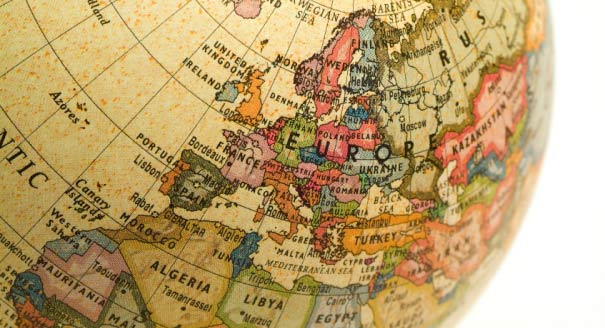Europe is confronting two major threats of very different proportions. The first is from the self-proclaimed Islamic State, also known as ISIS. The second is from Russian aggression. Both threats have the potential to tear Europe apart in a way that could endanger its democratic, open, and tolerant values.
As it is, a strong, open, and vibrant Europe is in the interests of neither the Islamic State nor Russia, because Europe represents a way of life and a set of values that run contrary to both this jihadist group and the Russian president, Vladimir Putin.
For these very reasons, European governments should seize the opportunity to use these twin threats to cooperate over defense and security, immigration, and the integration of Muslim communities.
This means reaching out as far as possible to civil society in Europe’s Eastern and Southern neighborhoods. It also means not turning a blind eye to the widespread human rights abuses taking place in Egypt and Azerbaijan, to name just two countries.
The threat to Europe’s democracy and stability from the Islamic State cannot be underestimated. The terror and havoc that the group’s militants are wreaking across the Middle East is forcing hundreds of thousands—if not millions—of people to flee. Just consider the chaos engulfing Libya, not to speak of Syria and Yemen.
Those fleeing such conflicts see Europe as a place of safety that can also offer some perspective of a new beginning. But the flow of refugees and increasing Islamophobia in Europe play into the hands of populist parties across the continent.
In France, the far-right National Front won 25 percent of the vote during the first round of municipal elections on March 22. The result showed the attraction of its policies, which are directed against immigrants, particularly Muslims.
Other populist parties in Europe are making ground, too. Were they to win enough votes to gain power, they could use their success to turn Europe into a fortress, and an illiberal one at that. Rather than cede ground to these parties, mainstream parties should turn the threat of the Islamic State into an advantage.
Mainstream parties should turn the threat of #ISIS into an advantage.Tweet This
That advantage could consist of several strands. European governments could work much more closely together in sharing the burden of providing safety to refugees. Furthermore, as young men and women leave Europe to join the jihadists, the intelligence and security services across Europe could cooperate more with their counterparts in Turkey, for example.
Such cooperation is gaining pace. Recent terrorist attacks in Belgium and France and foiled attacks in other European countries show why governments have to work more closely together when it comes to sharing information and intelligence. It is naive to believe that governments can go it alone.
Above all, European governments, together, have to deal with youth unemployment. A younger generation without a perspective is a recipe for disaffection, radicalization, and instability. Harping on about Europe’s values is not a panacea. Those values can only have meaning to young people if they are anchored in the opportunity, tolerance, and security that make up the fiber of democratic societies.
The threat from Russia, with its emphasis on hybrid war, is different. But there is one similarity with the Islamic State: the attempt to divide and weaken Europe.
Somehow, Putin believes that a strong and prosperous Europe is not in Russia’s interests—and that certainly, neither is democracy in Ukraine and other countries in the region. Indeed, over the years, with few exceptions, Russian foreign policy has aimed at dividing Europe by playing off the EU member states against each other.
That is why Europe’s ability to hold together over its policy of sanctions on Russia surprised the Kremlin. Such unity was out of character for the EU. And German Chancellor Angela Merkel’s strong stance in supporting the sanctions was another surprise for Russia. On Merkel’s watch, Russia has for the moment lost a key ally in the EU. It is she who has been crucial in keeping Europe united over Russia.
What is more, because of Russia’s annexation of Crimea and its invasion of parts of eastern Ukraine, Germany has rediscovered NATO. The country is no longer on the sidelines but is prepared to play a much greater security role in the territorial defense of the alliance.
Because of #Russia's annexation of Crimea, #Germany has rediscovered NATO.Tweet This
Security extends to the eurozone as well. Despite all the economic problems faced by the Greek Prime Minister Alexis Tsipras, his two-day visit to Berlin on March 23–24 was of fundamental importance for Europe’s security.
Merkel and other European leaders surely realize that if Greece were to leave the eurozone, its exit would cause immense damage not only to the idea of a single European currency but also to European security. A so-called Grexit would leave Greece’s economy even more vulnerable, while the country’s democratic institutions would be severely tested. Russia, meanwhile, could gloat and capitalize on such a catastrophe.
In short, the two crises facing Europe could be a big chance for European governments to work much more closely together to protect a way of life whose attraction and stability cannot be taken for granted.






.jpg)